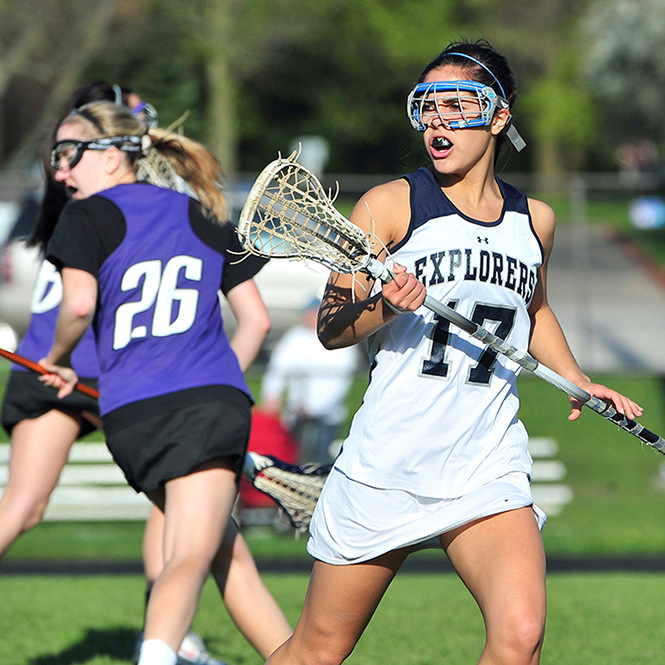April Is Sports Eye Safety Month! When playing sports, we often take precautions to protect our arms, legs, fingers, and so on from unnecessary damage.
While all of that is great, it’s even more important to protect our eyes. Some sports actually require protective eyewear, but even for the ones that don’t, we need to recognize when and how we should be protecting our eyes.
Why Does Eye Protection Matter?
One of the leading causes of blindness in children is eye injuries, and most of these injuries are sports-related. What makes this even more devastating is that, according to the National Eye Institute, up to 90 percent of sports-related eye injuries could have been prevented by wearing protective eyewear. So let’s take a closer look at the protective eyewear for different sports.
The Right Eye Protection For The Sport
Some sports require more eye protection than others, and some may not specifically require eye protection but it’s still a good idea to have it. The sports where eye safety is a particular concern are lacrosse, archery, swimming, football, hockey, and snowboarding or skiing. For these sports, you can usually find specialized face masks or goggles alongside the other protective equipment.
For sports like soccer, basketball, baseball, tennis, and biking, a good eye protection option is polycarbonate goggles, which can be worn over glasses. Polycarbonate is a much stronger material than regular plastic and resists shattering when something strikes them. Sometimes these goggles can even be specially made to match vision prescriptions so the athlete doesn’t have to wear their goggles and glasses at the same time!
Things are more complicated with sports like water polo, where normal eye protection can actually become a hazard. A flying elbow to the face from another player could shove a pair of goggles askew or even into the eyes, and we don’t want that. Unless you are careful to follow USA Water Polo’s very specific guidelines for protective goggles and you need them to see because you have a strong prescription, it’s probably better not to use goggles at all.
Let Your Optometrist Help You Find The Right Gear!
If you aren’t sure what type of gear is best for the sport you play, come see your local Vision Source® member optometrist, and they’ll help you pick out the right protective eyewear to keep you at the top of your game. And if you or anyone on your team does sustain an eye injury, it’s critical to get straight to an eye doctor for treatment.
Wishing All Vision Source® Patients A Great Season!
Find a Vision Source® practice near you using our search tool.

